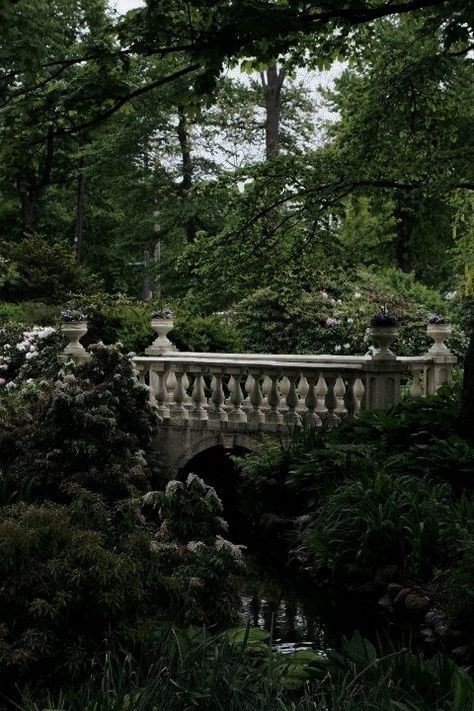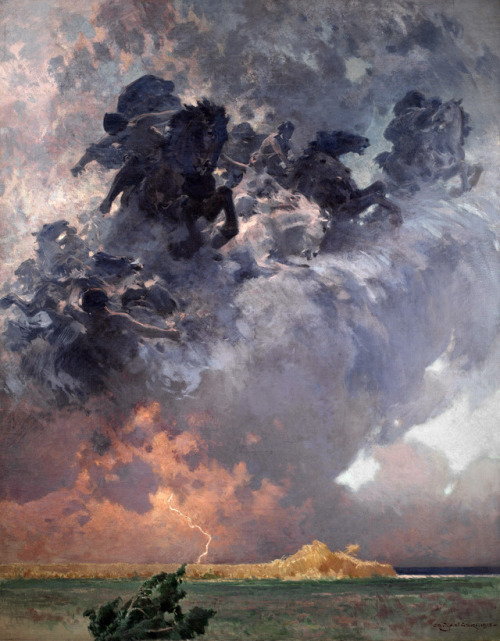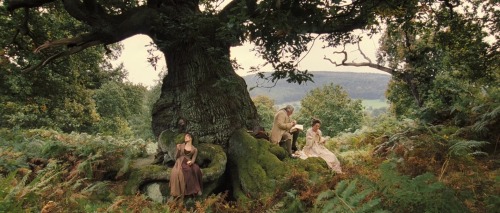Jihyun Yun, From Some Are Always Hungry; “Reversal”

Jihyun Yun, from Some Are Always Hungry; “Reversal”
[Text ID: “I so want to survive this. Please lead me whole into another season so I may dare begin again.”]
More Posts from Melzinhaxuxu and Others










Mary Sarton, Journal of a Solitude










Dreamy mood in the paintings by Henri Le Sidaner (French, 1862-1939)

Storm, 1925 - oil on canvas. ― Zdzisław Jasiński (Polish, 1863-1932)

Barry Lategan - Moyra Swan Wearing Dresses by Mila Schön (Vogue Italia 1970)

— Sylvia Plath, The Unabridged Journals of Sylvia Plath
[text ID: What I fear most, I think, is the death of the imagination.]
no YOU live in a society i live in this frame of pride and prejudice










In many cultures, ethnic groups, and nations around the world, hair is considered a source of power and prestige. African people brought these traditions and beliefs to the Americas and passed them down through the generations.
In my mother’s family (Black Americans from rural South Carolina) the women don’t cut their hair off unless absolutely necessary (i.e damage or routine trimming). Long hair is considered a symbol of beauty and power; my mother often told me that our hair holds our strength and power. Though my mother’s family has been American born for several generations, it is fascinating to see the beliefs and traditions of our African ancestors passed down. We are emotionally and spiritually attached to our hair, cutting it only with the knowledge that we are starting completely clean and removing stagnant energy.
Couple this with the forced removal and covering of our hair from the times of slavery and onward, and you can see why so many Black women and men alike take such pride and care in their natural hair and love to adorn our heads with wigs, weaves, braids, twists, accessories, and sharp designs.
Hair is not just hair in African diaspora cultures, and this is why the appropriation and stigma surrounding our hair is so harmful.




Oh, to live in a place like this...
-
 napthyme liked this · 3 weeks ago
napthyme liked this · 3 weeks ago -
 thr3shold liked this · 4 weeks ago
thr3shold liked this · 4 weeks ago -
 faeriemelody liked this · 4 weeks ago
faeriemelody liked this · 4 weeks ago -
 revalen reblogged this · 4 weeks ago
revalen reblogged this · 4 weeks ago -
 griefchapter liked this · 4 weeks ago
griefchapter liked this · 4 weeks ago -
 dirtboyfriend liked this · 4 weeks ago
dirtboyfriend liked this · 4 weeks ago -
 yvesfm liked this · 4 weeks ago
yvesfm liked this · 4 weeks ago -
 ino liked this · 4 weeks ago
ino liked this · 4 weeks ago -
 ballanduy reblogged this · 4 weeks ago
ballanduy reblogged this · 4 weeks ago -
 friendcode reblogged this · 4 weeks ago
friendcode reblogged this · 4 weeks ago -
 bcserotonin liked this · 4 weeks ago
bcserotonin liked this · 4 weeks ago -
 sadbbykay liked this · 4 weeks ago
sadbbykay liked this · 4 weeks ago -
 fallintothestars reblogged this · 4 weeks ago
fallintothestars reblogged this · 4 weeks ago -
 21loveseeds liked this · 1 month ago
21loveseeds liked this · 1 month ago -
 fibrofog reblogged this · 1 month ago
fibrofog reblogged this · 1 month ago -
 deadjawn liked this · 1 month ago
deadjawn liked this · 1 month ago -
 ceilinggirls liked this · 1 month ago
ceilinggirls liked this · 1 month ago -
 heartsick reblogged this · 1 month ago
heartsick reblogged this · 1 month ago -
 seolinguk liked this · 1 month ago
seolinguk liked this · 1 month ago -
 bookishmuggleborn liked this · 1 month ago
bookishmuggleborn liked this · 1 month ago -
 dreamsofcherryflavor liked this · 1 month ago
dreamsofcherryflavor liked this · 1 month ago -
 romantic-shepherd reblogged this · 1 month ago
romantic-shepherd reblogged this · 1 month ago -
 serendipitous-posts reblogged this · 1 month ago
serendipitous-posts reblogged this · 1 month ago -
 friendcode liked this · 1 month ago
friendcode liked this · 1 month ago -
 ririririririii liked this · 1 month ago
ririririririii liked this · 1 month ago -
 luxuryfeminine reblogged this · 1 month ago
luxuryfeminine reblogged this · 1 month ago -
 izzybizzyspiduh liked this · 1 month ago
izzybizzyspiduh liked this · 1 month ago -
 buriedpentacles liked this · 1 month ago
buriedpentacles liked this · 1 month ago -
 coyote-sings reblogged this · 1 month ago
coyote-sings reblogged this · 1 month ago -
 spanishgirlblues reblogged this · 1 month ago
spanishgirlblues reblogged this · 1 month ago -
 fibrofog reblogged this · 1 month ago
fibrofog reblogged this · 1 month ago -
 malprazolam reblogged this · 1 month ago
malprazolam reblogged this · 1 month ago -
 stirb-nicht-vor-me liked this · 1 month ago
stirb-nicht-vor-me liked this · 1 month ago -
 bbyrai reblogged this · 1 month ago
bbyrai reblogged this · 1 month ago -
 literatureisdying liked this · 1 month ago
literatureisdying liked this · 1 month ago -
 wisdomwillow liked this · 1 month ago
wisdomwillow liked this · 1 month ago -
 jointedoll reblogged this · 2 months ago
jointedoll reblogged this · 2 months ago -
 midnightkissing liked this · 2 months ago
midnightkissing liked this · 2 months ago -
 cheekblush liked this · 2 months ago
cheekblush liked this · 2 months ago -
 galariangengar liked this · 2 months ago
galariangengar liked this · 2 months ago -
 dreamylittlevalentine reblogged this · 2 months ago
dreamylittlevalentine reblogged this · 2 months ago -
 ambrosialambience reblogged this · 2 months ago
ambrosialambience reblogged this · 2 months ago -
 ambrosialambience liked this · 2 months ago
ambrosialambience liked this · 2 months ago
